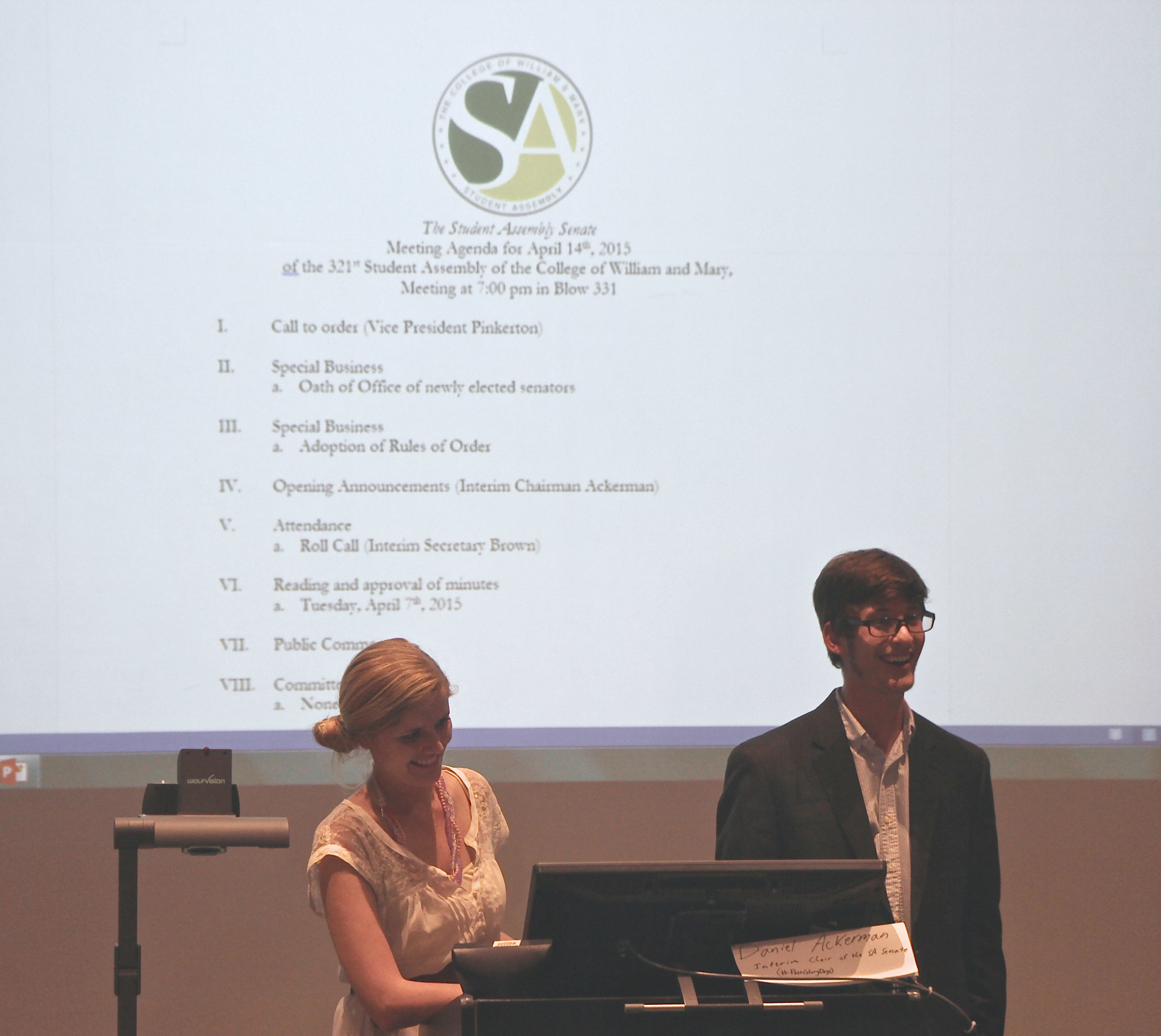The Student Assembly Senate confirmed the nominations of members of the executive cabinet and the elections commission during its last meeting of the semester Tuesday evening.
During the senate meeting, nominees introduced themselves to the senators. SA President Yohance Whitaker ’16 then made an executive comment. Committee comment, public comment and senator discussion immediately followed.
Twenty-two out of 24 nominees were confirmed.
Eleven nominees were unable to meet with their assigned committee. Three nominees are currently studying abroad and could not make either the committee meeting or the senate meeting. Whitaker attributed the absences of the eight other nominees to the quick turnaround in receiving the official nominations.
“It was a very fast turnaround for a lot of our secretary nominees just because we just finished interviews, notified them and then told them about committee and senate,” Whitaker said. “We’ve been working very hard and [are] still in the midst of undersecretary reviews.”
Senators expressed uncertainty about confirming nominees who were present on campus but unable to attend both the committee and senate meetings.
“Presence is extremely important in the Student Assembly,” Sen. Chase Jordan ’15 said. “While I recognize the importance of academics, missing both the Sunday committee meeting and the Tuesday senate confirmation hearing should not just be rubber stamp approved.”
As a result of this hesitation, the nominations for Nicholas Cardozo ’17, for a position on the election commission, and Emilee Hunt ’18, for a position on the Review Board, were tabled until the next senate meeting.
Sen. Peter Quinn-Jacobs M.A. ’18 J.D. ’18 and Sen. Tyler Brent ’15, sponsors of the Non-Discrimination in the Workforce Resolution, withdrew the resolution after senator discussion.
Although the policy and public affairs committees gave the resolution positive reviews, both committees had some reservations.
“The bill was not specific enough,” Sen. James Walker ’15 said. “Maybe with some work shopping it could have more teeth and more specificity. I know in [the] public affairs [committee] one of our main concerns was that these types of communications generally go through the executive department. This is not usually what the senate does.”
In place of the resolution, the executive branch may release a statement in support of William and Larry’s initiative and offer its assistance in discussions with the Williamsburg City Council.
The senate also heard the case of Sen. John Yoest ’17, who missed the first two meetings of the 323rd session. According to the code, senators who miss three meetings in a semester must provide an explanation for their absences on the senate floor.
Yoest stated his absences were the result of his commitment to the College’s baseball team but promised to improve his attendance and involvement next semester.
“In the fall semester, my NCAA-mandated one off-day per week should align with the senate meetings,” Yoest said.
Senators voiced their belief that Yoest should be able to fulfill his duties as a senator by attending Sunday committee meetings and communicating with other senators. They proposed revisiting the proxy system for his unavoidable absences.
The proxy system would allow Yoest to appoint another person to attend meetings in his place and to vote on his behalf. Currently, the proxy system only exists for graduate senators.

